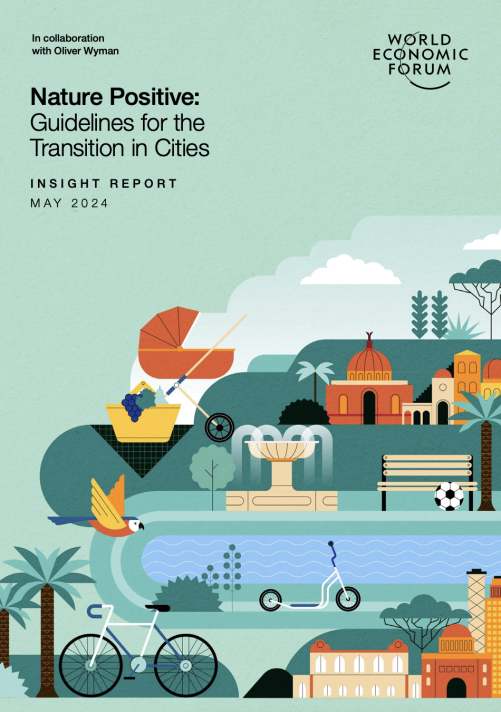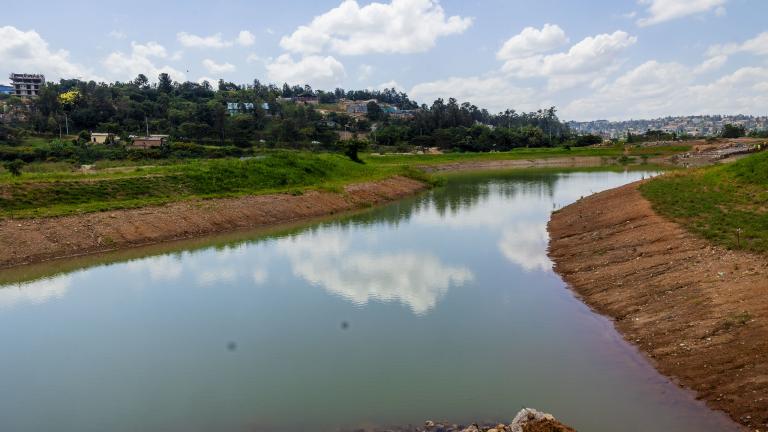Report

Nature Positive: Guidelines for the Transition in Cities
This report published by World Economic Forum highlights the pivotal role of cities in leading the global fight against climate change and biodiversity loss.
Nature Positive: Guidelines for the Transition in Cities is published by the World Economic Forum in collaboration with Oliver Wyman. It is part of the World Economic Forum’s Nature-Positive Transitions report series that outlines the different pathways to halt and reverse nature loss by 2030 – the mission at the heart of the Global Biodiversity Framework.
The series consists of two parts: sector transitions and city transitions. These reports highlight the relevance of nature-related risks, identify the impacts and dependencies of the economy and society on nature, and provide guidelines for city and business leaders on key actions to accelerate the nature-positive transition.
The Nature-Positive Transitions report series builds on the New Nature Economy Report series.

Visions of Sustainability in Mar del Plata and Mar Chiquita
Along the coast of Argentina, two ambitious plans are showing how participatory design and nature-based solutions can lay the groundwork for inclusive, climate-resilient outcomes.

Nature-Positive Tourism: How local leadership can balance conservation and economic growth
In this ICLEI-hosted webinar, learn how cities can protect natural ecosystems while generating revenue from sustainable tourism.

Breathing New Life into 5 Kigali Wetlands to Enhance Climate Resilience and Quality of Life
These formerly degraded sites will soon welcome visitors for recreational and educational opportunities—while alleviating flood challenges for the city.

Building City Capacities for Urban Resilience: Three Learning Modules to Tackle Climate Risks
These self-study courses guide city officials through best practices for assessing climate risks and mitigating flood and heat hazards.
